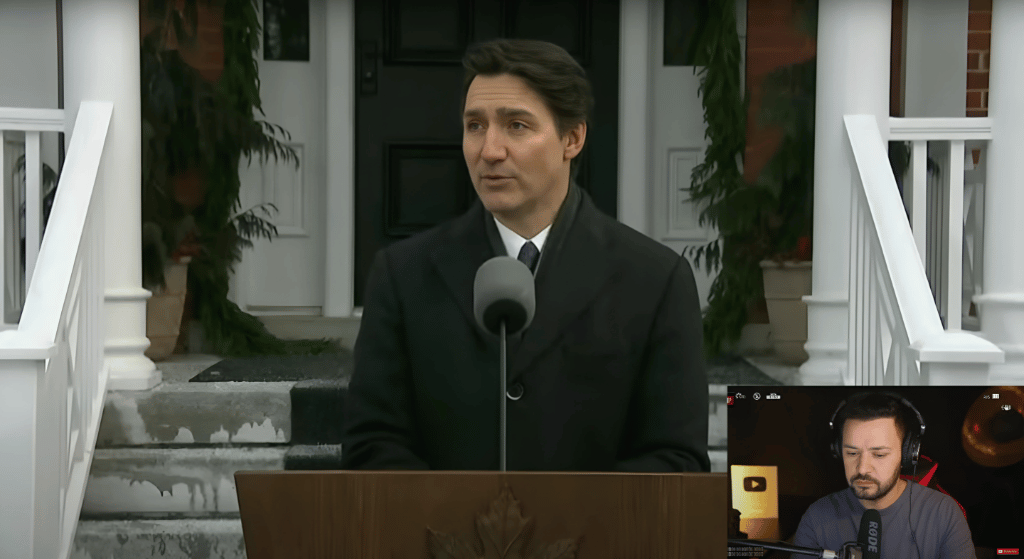On January 6, 2025, Canadian Prime Minister Justin Trudeau officially announced his resignation as both party leader and prime minister. This decision comes amid political gridlock in Parliament, waning public support, and mounting pressure for a leadership change.
Trudeau’s Statement and Reasons for Resignation
During his resignation speech, Trudeau expressed deep love for Canada and emphasized his commitment to the country’s interests. However, he cited the prolonged paralysis of Parliament and internal battles within his party as the key reasons for stepping down.
“Parliament has been paralyzed for months,” Trudeau stated, referring to the longest session of a minority government in Canadian history. He explained that his resignation would provide an opportunity to reset the political temperature and allow Canadians to choose a leader better equipped to face the next election.
The resignation follows internal disputes, including a notable fallout with Deputy Prime Minister Chrystia Freeland. While Trudeau declined to share details, it’s clear the internal dynamics of his party played a significant role in his decision.
What’s Next for Canada?
Trudeau announced that his resignation will take effect after the Liberal Party selects its next leader. This transition is expected to involve a competitive nationwide process, allowing the party to regroup and prepare for the next federal election.
In the meantime, Canada faces critical challenges, including economic recovery, climate change initiatives, and maintaining its stance on global diplomacy. Trudeau expressed confidence that the Liberal Party would continue to advance these priorities under new leadership.
The Larger Context: International Dynamics
Trudeau’s resignation also arrives at a time of increasing geopolitical pressure. U.S. President-elect Donald Trump has reignited discussions about North American borders, tariffs, and even the notion of annexing Canada into the United States—a topic that has sparked both humor and controversy. Trump’s administration has been vocal about imposing significant tariffs on Canada unless it addresses trade and border issues, leading to tension between the two nations.
Moreover, Trump’s recent comments about Greenland and other territorial expansions have added to the already complex political environment. While these discussions are largely speculative, they underscore the shifting dynamics in North American politics.
Trudeau’s Legacy and Reflection
First elected in 2015, Trudeau has led Canada through pivotal moments, including the COVID-19 pandemic, reconciliation efforts with Indigenous communities, and climate change initiatives. However, his tenure has also been marked by controversies and criticism over governance and economic policies.
In his farewell, Trudeau reflected on his regrets, including the inability to reform Canada’s electoral system. He lamented the polarization in Canadian politics and urged leaders to find common ground to unite the nation.
A Historic Moment
Trudeau’s resignation marks a significant moment in Canadian history, symbolizing the challenges of leadership in a deeply divided political landscape. As the Liberal Party embarks on its search for a new leader, Canadians will look to the future with hope for a more unified and effective government.
